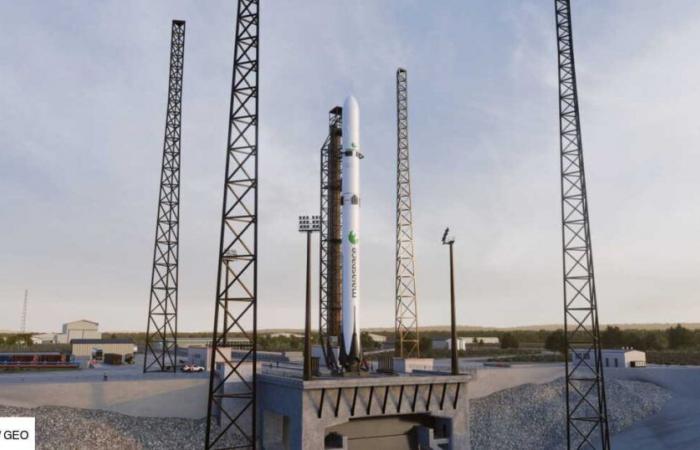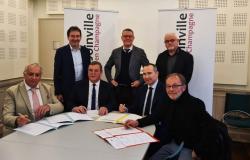It didn’t take long for Yohann Leroy to distance himself from SpaceX. As president and CEO of Maiaspace, his objective is to design and produce a reusable rocket, the first of its kind in France, but also in Europe, which forces comparison with the American company.
But while SpaceX – founded 20 years earlier – has become a juggernaut in orbiting with several launches per week, Maiaspace – a subsidiary of Ariane Group created in 2022 – wants to be a more reasoned player. The idea is to provide a much more personalized service to its customers, without seeking to constitute its own constellation of satellites or to become a major player in the conquest of space.
“Iterative and incremental development”
The Maia rocket is expected for a first operational launch in 2026. Where are you and how are you managing to meet such a short deadline?
The most spectacular photos from NASA and SpaceX
We’re about halfway there. I usually use a sports metaphor to answer this question. When you run a marathon, usually the first half marathon goes smoothly and what determines our result is the second half of the race. Except that here, we are building a launcher in four years, which has never been done. So we should rather talk about a sprint than a marathon.
In terms of how, we adopted the Agile method, inspired by software development. We adapted it because a rocket certainly includes software, but also hardware. This involves doing iterative and incremental development.
In fact, we divide our Maia launcher into smaller systems (the first stage, the second, the structures, etc.) and we aim to produce three different models for each. There will first be a first prototype, which we will test to improve the design of the second which will be much closer to what we want. The tests of this second prototype will validate the design of the first flight model.
At the moment, we are carrying out ground tests of the second prototypes. We check aspects such as resistance to vibrations, crushing or good pressure resistance. This is only our third iteration which will be intended to fly. But after this first flight, we will continue to evolve Maia to achieve the performance we have set.
“There is this notion of reuse, but the comparison with SpaceX stops there”
Maiaspace is often presented as the French SpaceX. How is this comparison true or false?
First, MaiaSpace is certainly based in France, but our DNA is resolutely European: through our shareholders Airbus and Safran, our industrial footprint, with 40% of the launcher costs which will be generated outside France in Europe, and the diversity of the ‘team.
Then, for the general public, there is this notion of reuse. Besides, the way to recover our first stage is quite similar to how SpaceX goes about it. And this technique is itself very close to that imagined much earlier by the Europeans, but abandoned because they were convinced that it made no economic sense.
But the comparison with SpaceX stops there. Firstly because our launcher is not in the same range as Falcon 9. Secondly, the targeted frequency of launches is around one takeoff every two weeks, whereas SpaceX organizes several per week.
Also, we hope to take around 25% of the accessible market for satellites weighing less than 3 tonnes in low orbit. When SpaceX is its own client [notamment pour alimenter son service de communication par satellite Starlink, ndlr]we hope to be able to offer a competitive offer for observation, telecommunications, or scientific satellites.
We also have a rather different vision. Elon Musk launched SpaceX for space exploration in the hope that humans will one day live somewhere other than Earth. Our objective, with Maiaspace, is on the contrary to try to ensure that life on Earth can remain livable for as long as possible.
“Access to space is a question of sovereignty”
How is the creation of a reusable rocket a challenge for Europe and for France?
This is a competitiveness issue. It’s a shame to build a rocket every time if it is possible to salvage part of it. Especially the most expensive, because the first stage represents more than half of the total cost of the rocket.
Access to space is a question of sovereignty, a geostrategic question. However, public budgets are constrained. There are therefore necessary conditions for Europe and France to maintain access to space, particularly in terms of costs. And having a competitive reusable launcher is one of these conditions.






